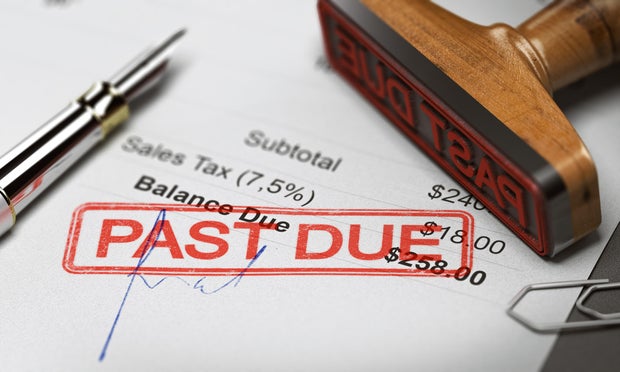Getty Images/iStockphoto
When you fall behind on your credit card payments, the consequences can snowball a lot faster than you may expect. For example, what might start as a missed payment due date or two can quickly lead to collection calls, mounting interest charges and exorbitant late fees — and, in some cases, may even end in a charge-off. And, for many borrowers, a charge-off just shows up on their credit report with little explanation, leaving them unsure of what it means or how long the impact will follow them.
Credit card charge-offs have become more common recently, and that makes sense given today’s tough economic landscape. After all, credit card balances recently reached a record high of over $1.21 trillion, with more borrowers relying on this type of short-term, high-rate borrowing to get by. And, as those balances climb, serious delinquencies — which are debts that are 90 days or more past due — are climbing fast, too. That means a higher risk of charge-offs and a tougher path to financial recovery for those struggling to keep up.
But a charge-off doesn’t have to define your financial future. By understanding how the seven-year rule applies, you’ll be better prepared to tackle the debt challenges you’re facing and move forward toward a healthier financial future.
Take steps to get rid of your charged-off credit card debt now.
What to know about credit card charge-offs and the 7-year rule
A credit card charge-off occurs when your credit card issuer decides your debt is unlikely to be collected. This typically happens after about 180 days (or roughly six months) of missed payments. Once the account is charged off, the issuer writes it off as a loss for accounting purposes, but that doesn’t mean your obligation disappears. You still owe the full balance.
After a charge-off, the creditor might sell your account to a collection agency. From there, the debt collector will try to recover what’s owed, often adding fees or interest in the process. The charge-off notation, meanwhile, stays on your credit report for seven years from the date of the first missed payment that led to it, not from the date it was sold, transferred or settled.
That’s the seven-year rule, and it’s an important part of determining what to do next in terms of your charged-off debt. During that seven-year timespan, the charge-off can significantly lower your credit score, making it harder to qualify for new credit cards, loans or even rental housing. Fortunately, as the charge-off entry ages, its impact lessens, and by the end of the seven years, it should automatically drop off your credit report altogether. When that happens, the charge-off no longer impacts your score.
Keep in mind, though, that while the rule dictates that the charge-off can only appear on your credit report for seven years, the debt itself may still be collectible depending on your state’s statute of limitations. Some states allow creditors or collectors to sue for unpaid debt for three years, while others give them up to 10. Paying or acknowledging the debt can also restart the clock, so it’s crucial to understand those rules before taking action.
Speak to a debt relief expert about your options today.
How debt relief can help you recover faster
While the seven-year rule ensures that charge-offs eventually fall off your credit report, waiting seven years for the issue to resolve itself isn’t your only option. Taking proactive steps now can help you settle your charge-off accounts sooner and potentially rebuild your credit faster.
One option is to work with a debt relief company to negotiate with your lenders and creditors to try and settle the charge-offs for less than what you owe. For example, if your charged-off account was sold to a collection agency, the agency might be willing to accept a reduced lump-sum payment to close the account since they purchased the debt at a discount.
Alternatively, enrolling in a debt management program through a nonprofit credit counseling agency may be a good fit if your accounts are past due but not yet charged off. A debt management plan consolidates your payments into one monthly bill with lower interest rates and fees, making it easier to catch up and avoid charge-offs altogether.
For borrowers facing severe financial hardship, filing for bankruptcy might be the best way forward. It comes with serious credit implications, but can also provide a clean slate sooner than simply waiting out the seven-year window. A reputable debt expert can help you assess your situation, understand your options and create a customized plan to reduce or eliminate your debt.
The bottom line
A credit card charge-off can be a serious financial setback, but it doesn’t have to derail your long-term goals. While the seven-year rule determines how long the entry affects your credit, the steps you take today, from reviewing your credit reports to exploring debt relief, can make a meaningful difference in how quickly you recover. So, if you’re struggling with charged-off accounts or mounting debt, don’t wait to fix the problem. Weigh your options and find a clearer path toward rebuilding your credit and regaining control of your finances.

